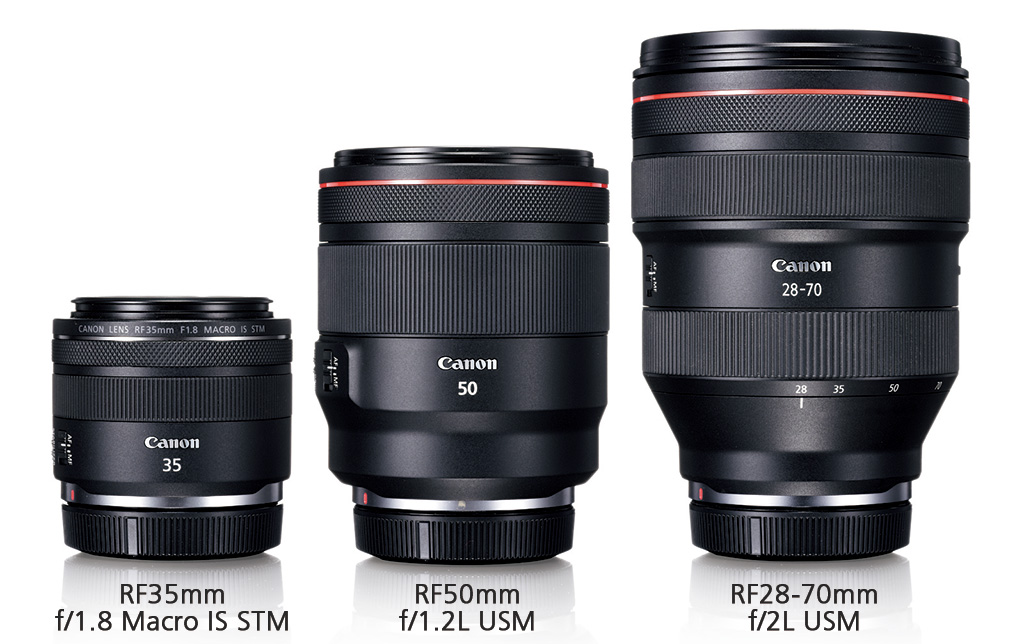There are a lot of different types of lenses available for different camera systems. Some of these lenses are only compatible with specific models, so it can be confusing if you’re new to the photography world and all the jargon that comes along with it.
So, do all Canon lenses fit all Canon cameras? The simple answer is No because there are many types of Canon lenses and cameras. So it is obvious there can be some compatibility issues because different Canon cameras support different Canon lenses. It is more to remember than to understand.
If you’ve ever wondered whether you can use your telephoto lens from one camera system on another camera system (e.g., will your Canon EF-S 55mm f/2.8 image stabilization lens also work on your Canon Rebel T6i?), then this article is for you.
The purpose of this blog post is to provide you with everything you need to know about using Canon lenses with Canon cameras, and the differences between them.
But before this, you need to understand some basic concepts about different types of cameras.
Table of Contents
What’s the Difference Between DSLR, Mirrorless, and Point & Shoot Cameras?

Nowadays, there are a large number of different types of cameras on the market that can be used for different purposes. Each camera type has its own pros and cons, and each has a slightly different lens system.
In most DSLR cameras, there is a mirror inside the camera, which reflects light from the lens above the viewfinder, enabling the photographer to see what the camera sees when they are looking through the viewfinder.
Mirrorless cameras don’t have this mirror. This allows photographers to shoot with a much quieter shutter but also makes the camera a little bulkier. Point-and-shoot cameras are designed for quick and easy picture taking. They are smaller and lighter than full DSLR cameras.
There are also many different lens systems. The most common are EF-S and EF-M. The Canon EF-S lenses are intended to be used with Canon DSLR cameras with APS-C sensors, while the Canon EF-M lenses are designed for use with mirrorless cameras.
Read more: Canon AE-1 Vs Olympus OM-10 | A Detailed Comparison
Canon EF, TS-E, MP-E Lenses
Canon EF-series lenses are made for Canon’s DSLR camera systems. EF-series lenses are compatible with all Canon DSLR cameras, including the Canon Rebel series. Moreover, EF-series lenses are compatible with other Canon DSLR cameras with an adapter.
For example, you can use an EF lens on a Canon APS-C camera by using a Canon EF-S adapter, which I will talk about in the next section.
TS-E lenses are tilt-shift lenses. They are special lenses that allow you to manipulate the plane of focus within the image and create some very unique effects. They are costly and not something you will likely use often, but they are a fun lens to have in your bag for special occasions.
In terms of macro lenses, MP-E lenses are a special kind of macro lens that can be used to take extremely close-up photos.
However, they are not designed for normal photography and are usually used by professionals doing scientific work. Also, they are not ideal for the typical photographer and are very expensive.
Canon EF-S Lenses

As mentioned earlier, EF-S lenses are designed for Canon APS-C sensor cameras using a Canon EF-S adapter, including both DSLRs and mirrorless cameras. They won’t work on full-frame DSLR cameras like the Canon 5D.
The use of an EF-S lens on a full-frame camera may cause vignetting in the corners of the image.
However, with Canon’s APS-C sized sensors, you will be able to use any of the EF-S lenses with your camera.
For example, you can use an EF-S 18-55mm lens on a Canon Rebel T6i. You can also use EF-S lenses on full-frame Canon DSLRs with an EF-S adapter.
Related: How To Fix A Jammed Camera Lens?
Canon EF-M Lenses
Canon EF-M lenses are made for their mirrorless cameras. They aren’t compatible with Canon DSLRs because they do not have the correct mount for attaching the lens to the camera body.
For example, Canon EF-M lenses are fully compatible with Canon M5, EOS M50, and the Canon Rebel SL2.
You can also use EF-M lenses on the Canon EOS M6 camera, but you’ll have to turn off the lens compatibility feature on the camera’s menu.
Canon RF and RF-S Lenses

The RF and RF-S lenses are also offered for Canon’s mirrorless full-frame cameras. They can be used on the Canon EOS R, the Canon EOS RP, and the Canon EOS R. RF and RF-S lenses can only be used on Canon full-frame mirrorless cameras.
You will not be able to use these lenses with Canon Rebel series cameras that have an APS-C sensor, as they are not compatible with them.
Also, RF and RF-S lenses cannot be used on Canon DSLR cameras. They do not have the correct lens mount needed to attach to a Canon DSLR camera, similar to Canon EF-M lenses.
Can You Use A Canon Lens On A Nikon?
This is a very common question, and the short answer is “No.” The long answer is that Canon lenses have completely different mounts from Nikon lenses.
In other words, the mount that holds your lens onto your camera body is different, so you can’t just buy a Nikon lens and figure it will work with your Canon camera.
Some say that you can use an adapter to make it fit (and some people have been successful with this method), but in general, you can’t use a Nikon lens on a Canon camera.
Canon lens mounts are indicated by one of these letters: EF, EF-S, or EF-M. EF-S stands for “electronic focus-shift,” and EF-M is for “electronic mount.”
Canon also produces some cameras that use the same mount as their mirrorless cameras (with “EOS- “in front of the model name).
Nikon cameras have their own lens mount, indicated by an “F-“in front of the model name. Canon and Nikon cameras are not interchangeable with each other.
Can You Use Old Lenses On Digital Cameras?
Unfortunately, most old lenses don’t have the ability to communicate with the camera, so you can’t use them unless you make some modifications to them.
You may be able to use them if you have a lens adapter that allows you to fit your old lenses into your digital camera.
If you want to use old lenses on your digital camera, you should make sure that your old lenses are compatible and have a mount compatible with your digital camera.
- Canon lenses that have a mount of “EF” or “EF-S” will work with most Canon digital cameras.
- Nikon lenses that have a mount of “F” will work with most Nikon digital cameras.
- Pentax lenses that have a mount of “H” will work with most Pentax cameras.
Conclusions
You can use the information contained in this article to determine whether or not a specific lens is compatible with your camera. I think there is no need for further research. Again, as a summary, remember the following things related to the compatibility of Canon lenses:
- You will need an EF-S lens if your camera is equipped with an APS-C sensor.
- In order to avoid vignetting in the corners of your images, you need an EF-S lens for your full-frame Canon camera.
- A lens adapter is required if you have a full-frame Canon camera or if you are using an RF or RF-S lens.
- You need an EF-M lens if you own a mirrorless Canon camera.
- EF-M lenses can be used on Canon full-frame cameras, but you’ll have to turn off the lens compatibility feature on the camera.
Sources
- https://www.canon.ie/lenses/tech-guide/compatibility
- https://digicamlens.com/do-all-canon-lenses-fit-all-canon-cameras/
- https://www.eos-magazine.com/articles/eospedia/canon-lens-compatibility.html
- https://www.quora.com/Can-any-Canon-lens-work-on-every-Canon-camera
- https://photo.stackexchange.com/questions/46785/will-canon-cameras-fit-all-canon-lenses

